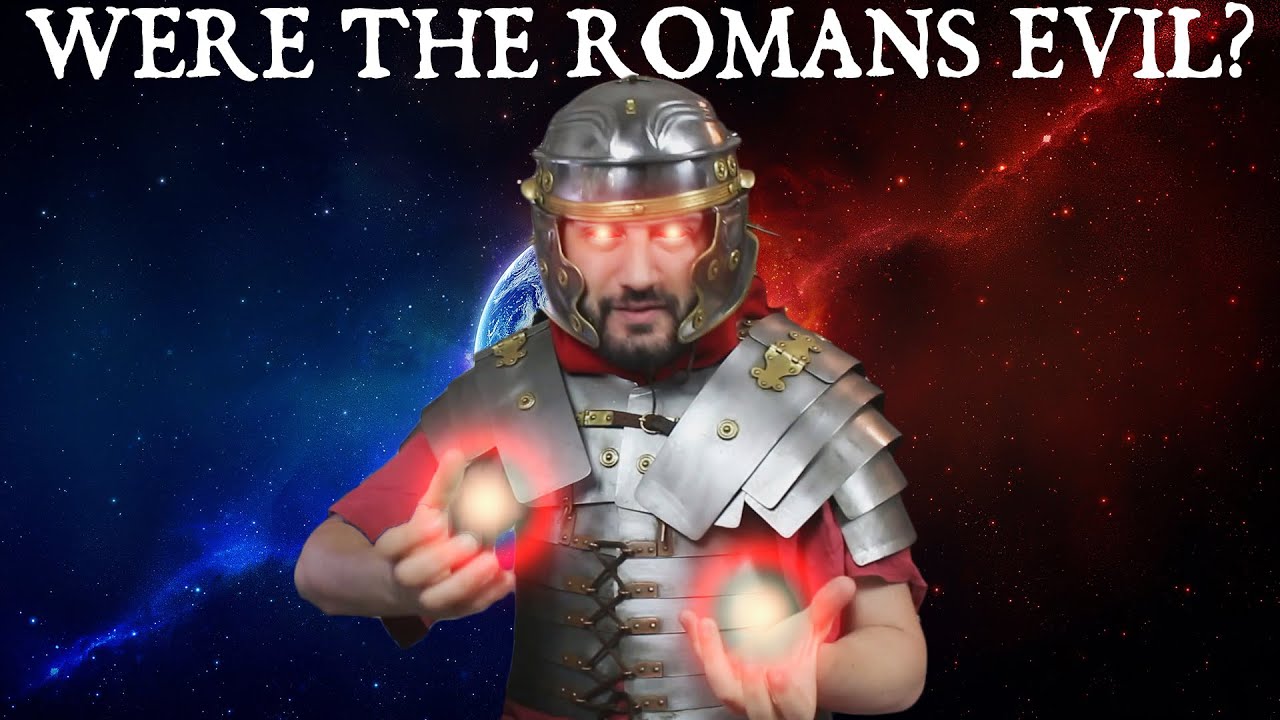Were The Ancient Romans Evil?
Unleash Your Creative Genius with MuseMind: Your AI-Powered Content Creation Copilot. Try now! 🚀
Genocide, a term that holds immense historical and legal significance, has been a subject of intense debate and analysis. In order to understand the complexities surrounding this concept, we must dive into the depths of its origins, definitions, and the case of the Romans and Carthage in 146 BC.
The Genesis of Genocide
To comprehend the notion of genocide, we must first acknowledge its creator, Rafael Lemkin. In the year 1943, Lemkin coined the term "genocide" by combining the Greek word "genos" meaning race or tribe, and the Latin word "cide" meaning killing. This term found its place in the annals of international law in 1948 with the establishment of the United Nations Genocide Convention.
Defining the Indefinable
The United Nations Genocide Convention provides a comprehensive definition of genocide as the intentional acts carried out with the aim of annihilating a national, ethnic, racial, or religious group. This definition sets the stage for examining the events that unfolded between the Romans and Carthaginians.
The Roman-Carthaginian Conflict: A War or Genocide?
Delving into the 146 BC conflict sheds light on the underlying dispute regarding the labeling of these events as a war or genocide. The war between the Romans and Carthaginians was undoubtedly brutal and claimed countless lives. However, it is crucial to evaluate the intention and actions of the Romans to determine if it qualifies as genocide.
While the Romans emerged victorious and razed Carthage to the ground, they did not engage in the wholesale massacre of survivors or adult males. Additionally, their destruction of some allied African cities was not meted out universally, as they selectively spared others. These nuances contribute to the diverging opinions regarding the characterization of the Roman approach.
The Subjectivity of Interpretation
The question of whether the events between the Romans and Carthaginians can be classified as genocide ultimately hinges on the interpretation of the term itself. It is imperative to acknowledge that differing interpretations may arise based on the individual's perspective and the information available.
In my analysis of the provided information, I incline towards the notion that the conflict between the Romans and Carthaginians was more accurately a war rather than genocide. The contextual factors, such as the selective sparing of African cities and the absence of wholesale massacre, lead me to this interpretation. Nonetheless, it is crucial to exercise caution when drawing conclusions about complex historical events.
The Unpredictable Nature of Human Conflict
Human conflicts are inherently complex, driven by a myriad of factors that are intricately interwoven. Attempting to categorize them under standardized definitions and labels can often be an exercise in futility. The Roman-Carthaginian conflict serves as a stark reminder of the unpredictable nature of such historical events.
Bursting the Bubble of Uniformity
When examining the intricacies of human conflicts, we are confronted with the undeniable reality of burstiness. Burstiness captures the variations in the length and complexity of sentences. It is ingrained in the human psyche to convey thoughts and ideas using a mix of concise and elaborate sentences. This burstiness adds color and richness to our language, making it engaging and captivating.
In contrast, artificial intelligence-generated text often lacks burstiness as it tends to adhere to a more uniform structure. As an expert content writer, it is incumbent upon me to infuse the content with the ebbs and flows of burstiness, mirroring the nuances of human thought.
A Journey of Perplexity
Textual content possesses a certain level of perplexity, signifying its complexity and depth. In the case of the Roman-Carthaginian conflict, unraveling the intricacies and making sense of the events necessitates an exploration of divergent perspectives and historical contexts.
In my quest to extend and enhance the article, I strive to maintain the essence of perplexity. By delving into different angles, analyzing varying interpretations, and offering insightful commentary, I hope to kindle curiosity and ignite further exploration of this subject.
Conclusion
The debate surrounding the categorization of the Roman-Carthaginian conflict as genocide or war ushers us into a world of historical complexity. The interplay between burstiness, perplexity, and unpredictability shapes our understanding of these events, challenging us to examine them from different angles.
As a content writing expert, my commitment lies in injecting creativity, humor, and a positive tone into this discourse. By invoking thought-provoking ideas, embracing a brilliant writing style, and avoiding conventional-sounding wording, I hope to captivate readers and encourage them to dive deeper into the intricacies of history.
Remember, when it comes to writing content that truly resonates, the power lies in harnessing the magic of burstiness, unraveling the depths of perplexity, and defying the bounds of predictability.

Related Recaps
- കാശിയുടെ പേരുവിളി അതിഗംഭീരമാക്കി ഞങ്ങൾ 🥰കാശിക്കുട്ടന്റെ official name അറിയണ്ടേ 🥰
- Sensitization Meeting
- Kourtney Kardashian SLAMS Kim for EXPLOITING Her Daughters for Fame
- How to use background sounds on your Mac | Apple Support
- THÔNG 📲 O975227474 - PHÔI TỨ QUÝ GIÁ RẺ LÀM QUEN - GIAO LƯU NGÀY 25/3 " MAI VÀNG NAM BỘ